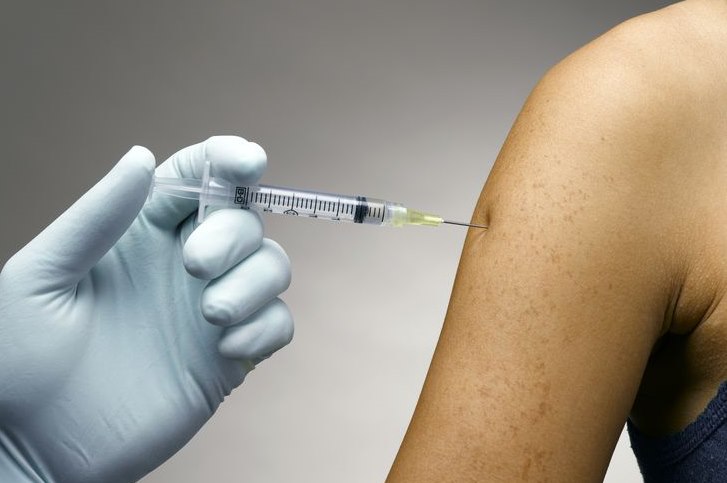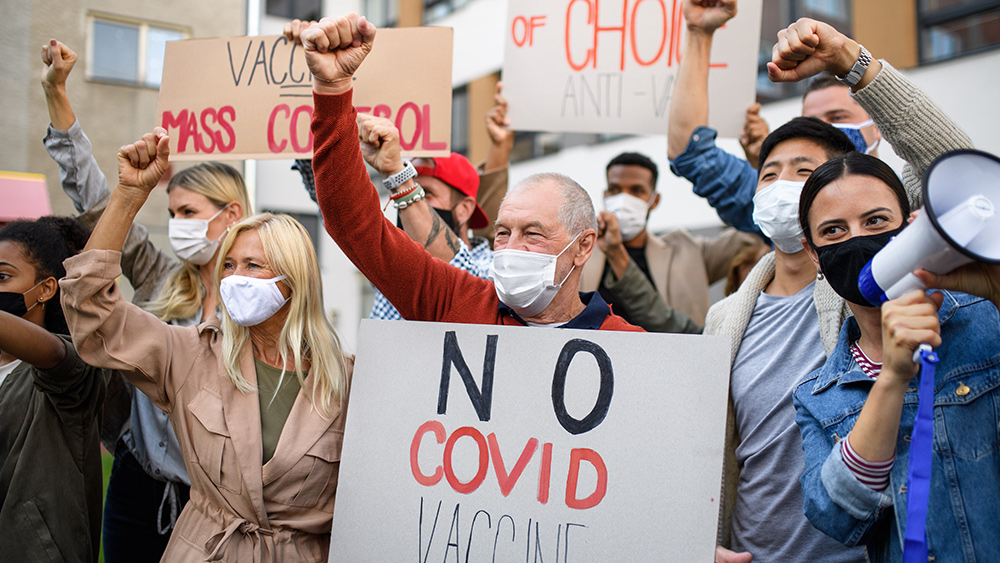
World Health Organization (WHO) Director-General Dr. Tedros Adhanom Ghebreyesus has called for a more aggressive approach to counteract anti-vaccine movements.
Tedros made this remark during a WHO celebration honoring so-called achievements in the 50 years since the organization launched the Expanded Program on Immunization (EPI). During the celebration in Geneva, Switzerland, Tedros declared that "vaccines are among the most powerful inventions in history."
"Thanks to vaccines, the smallpox has been eradicated, polio is on the brink and many one-sphere diseases can now be easily prevented, including measles, cervical cancer, yellow fever, pneumonia and diarrhea. With the recent development of vaccines against diseases like malaria, millions more lives can be saved," said Tedros.
"In 1974 fewer than five percent of infants globally were vaccinated. Millions died of diseases such as measles, polio and diphtheria. That was the year WHO launched the expanded program on immunization, or EPI as we all know. Today, about 84 percent of the world's children have received three doses of the vaccine against diphtheria, tetanus and pertussis, and diseases which were once a death sentence: smallpox," he continued.
"EPI supported countries to establish standardized vaccination programs [on] smallpox and six other diseases, diphtheria, measles, pertussis, polio, tetanus and tuberculosis. These programs do far more than ever imagined," said Tedros. "Fifty years ago, the EPI program helped millions of children, adolescents and adults access vaccines against 30 diseases, [now,] a new study led by WHO estimates that the EPI has saved at least 154 million lives since 1974 an average of more than 8000 lives a day for the past 50 years. Thanks to immunization, a child born today is 40 percent more likely to see their first birthday than a child born 50 years ago."
Tedros associated the progress of the EPI with partnerships among leaders, scientists, civil society, communities and families. The director-general also acknowledged the critical role of the Global Health Strategy, another WHO initiative that aims to save 40 million lives over the next four years, in supporting vaccine access worldwide. And so, he concluded that "it's time to be more aggressive in pushing back on anti-vaxxers." (Related: Anti-vaxxers, Covid skeptics labeled PSYCHOPATHS while murderous vaccine fanatics target innocent children.)
"You know the serious challenge that's posed by anti-vaxxers, and I think we need to strategize to really push back. I think it's time to be more aggressive in pushing back on anti-vaxxers," he stated. "I think they used COVID as an opportunity, and you know all the havoc they are creating."
COVID-19 vaccine skeptics branded "sick in the head"
What Tedros meant by that is they need to intensify the smear campaign against vaccine skeptics.
These past few years, the WHO labeled vaccine opposition as "misinformation" and "political extremism." Wuhan coronavirus (COVID-19) critics have often been accused of spreading dangerous falsehoods, despite citing anecdotal reports and statements about the adverse effects of COVID-19 vaccines.
In fact, a 2020 study published in the journal Social Psychology and Personality Science claimed that people who reject the official narrative surrounding the COVID-19 pandemic were "sick in the head" and crazy. Pavel S. Blagov, the author of the study, concluded that those who reject the government's draconian measures are abnormal and scary.
"It was clear from reports in the media very early in the COVID-19 pandemic that some people were rejecting advice to socially distance and engage in increased hygiene. There can be many reasons for this, and I thought that personality may play at least a small role in it," wrote Blagov, an associate professor and director of the Personality Laboratory at Whitman College.
In this context, Blagov's use of "personality" doesn't refer to benign differences like being an introvert versus an extrovert. Rather, he suggests that those who resist government lockdowns and social distancing measures might be categorized under the Dark Triad of personality traits, which include narcissism, Machiavellianism and psychopathy.
Watch the video below of The Patriot Nurse explaining Fauci's psychological pathology.
This video is from the Health Ranger Report channel on Brighteon.com.
More related stories:
Sources include:
Please contact us for more information.



















